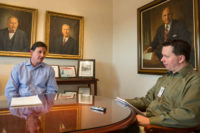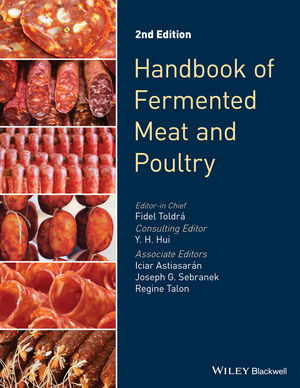Andy Hanacek, editor-in-chief: How far has the company come, from your perspective in the three years you’ve been here, and what are some of the things you’ve seen that have really gone above and beyond in terms of success?
Rupp: When we came in and started putting a team together, we had two challenges. We had to bring [Packerland and Swift] together, and at the same time get the business focused in one direction. Three years later, I’d say we’ve got good focus around what our core business drivers are, and we’ve made great progress. I think we’ve gotten a lot closer to customers with our products, and we’ve re-energized and re-launched some of our brands in the marketplace.
We also developed and launched an Angus natural program right here in Greeley. On our all-natural Angus and all-natural Holstein programs, we’ve pretty much gone from 0 to 60. We’re a big player in the natural market now.
We want to make sure that we have product offerings for the choices consumers make at the meat case. So that was really the drive to get us into the natural markets and why we continue to invest in that.
Hanacek: What were some of the specific challenges that you and your team had to face and then solve regarding the transition of the company over the last few years?
Rupp: It was a lot about developing a culture, with this company being a conglomeration of smaller companies that were all thrust into being one big company. People were trying to figure out where they fit and how they could make a difference, and we actually called that out. We said everybody needs to have a dialogue with their supervisor, about where they fit and why they matter. The other big thing we said was, ‘Sitting there with your head down and your mouth shut isn’t going to help us move forward. We know we’ve got opportunities; we know we’re not doing everything right. We need everybody to raise their hand and tell us what’s going on.’ It’s always going to be a work-in-progress, but I think we’ve made great ground in doing that.
Hanacek: The culture that existed before, how strong was it? Was it a matter of assimilating the different cultures together, or has JBS been trying to simply create a new U.S. corporate culture?
Rupp: It’s a little of all of the above. JBS has a very strong corporate culture, but a piece of that corporate culture was more South American than North American. One of the things I really compliment the Batistas and their initial team here for, is that they were self-aware enough to realize that they just couldn’t come up and run this thing like they ran their business in South America. They were very good at standing back and learning, understanding and acknowledging those differences.
Is the culture in North America identical to the culture in South America? I’d say it is, in regard to our key values. But as far as the ways in which those values are adopted or manifest themselves in the organization, I think that’s more of a geographical assimilation.
Hanacek: So at the end of the day, you didn’t have to make any significant, major changes based on the differences in the plants, and they’re thriving under the culture you instituted?
Rupp: Correct. When JBS first came in, they did several years of pretty significant capital investment in our plants. We’re quickly getting the assets to where they’re not in the way of the job that we want to do, and we’ve had great support from our shareholders to be able to get those things done.
Hanacek: With the demand for value-added products rising on the beef side of things, will JBS USA need to make any significant adjustments or investments in R&D?
Rupp: There are things we can do within our existing assets, but to make a value-added play on a big scale with a major customer, we’re going to have to look at investment. That said, we believe there is value in aligning with customers and having a common mindset on what we’re trying to deliver. The “Field of Dreams” strategy — where we’ll build it and they will come — can be a little dicey. But, going forward, it’s about getting closer to [end users]. So we’ve got to [develop more of] a relationship where we jointly talk about delivering on consumer expectations and generating the most value.
Hanacek: What are the plans for XL Foods, which is now JBS Canada? How soon do you feel that can be fully integrated into the JBS global family?
Rupp: Well, that was a new one for all of us — to take a plant that had been shut down by a recall situation and get it back on its feet and going again. I don’t know that we fully understood the magnitude of what we were undertaking until it was sitting on top of us, but we’ve gotten through it. The plant’s profitable for us today, and has become so in a relatively short period of time. It’s a good asset, number one. It’s got a good team of people, number two. We’ve been able to bring in a gentleman by the name Willie Van Solkema to head the Canada business, and he’s doing a great job focused on that marketplace. Our priority there is to supply Canada, while realizing that it is a country of about 30 million people, so they’re not always going to be able to consume the whole carcass.
It fits in nicely in that we’ll have a core competency in Canada focusing on Canada, and then what needs to come out of Canada, we’ll use our existing international sales team to disperse those products around the globe.
Hanacek: Let’s discuss export and international supply then. Is it significantly easier being part of the overall JBS family to do some of that crossover?
Rupp: I think that was one of the big “a-ha” moments for me coming here, realizing that I was joining a global organization like JBS, that wasn’t of U.S. origin. This international team has a huge international flair. … It’s just a whole new approach for me. I’ve been in the beef business for 30 years, and I thought I was global in my approach to the beef business — but I have since learned what it means to be global in your approach to the beef business. And so tying in to the JBS global reach on international beef is a real strength for this company, and one that we’ve just continued to focus on building upon.
Hanacek: What are your thoughts on where the beef industry overall is headed?
Rupp: One of the big conversations we’ve been having within the industry is about how the beef industry is not healthy today. Business is tough for the feeder; it’s tough for the packer. Clearly pain creates the need for change, and we need some change in our industry. When the industry isn’t doing well, we tend to point fingers within the industry, and we tend to view competition as being within the industry. But then you look at the pork industry or the poultry industry, and they clearly look outward for who that competition is, not inward. So I think we need to learn from those folks, and I think we need to do a better job.
JBS is never going to own all the pasture lands sufficient to raise all the cattle. It’s not going to happen in any of the global production segments of the beef industry. So that being said, we’ve got to figure out how to work together toward a common end. So, given the fact that this industry isn’t profitable today, and the outlook’s not great, now is the time for us to sit down together and figure out how to move this industry forward. How do we align around what consumer expectations are? How do we create more transparency with the consumer? How do we deliver the products that they want?
We’ve got to have the retailer and the foodservice operator at the table as part of those conversations. We need them to view themselves as part of this supply chain. We need them to view themselves as part of our industry. And it’s critical to their industry. I mean, beef at the center of the plate, in the restaurant or [at the dinner table], is key for those segments to hit their business targets.
Hanacek: Now that the assimilation of all the major pieces of the JBS acquisition binge is finished, how is JBS USA, in particular, stepping up and trying to be a leader in effecting this change?
Rupp: We’ve made a conscious effort to get out in front of people and talk about who we are and what our beliefs and thoughts are on this industry. We welcome the dialogue. We know that we don’t own all the answers, but collectively we need to get them. Beef has long been an emotional foundation of the U.S. economy, and heck, I want to see it be that going forward. We’re at a crossroads today, however. Some things need to change in our industry, just as they need to do in all viable industries. And you know what? JBS wants to be at the forefront of figuring out what that change needs to be and play a significant role in making it happen.








